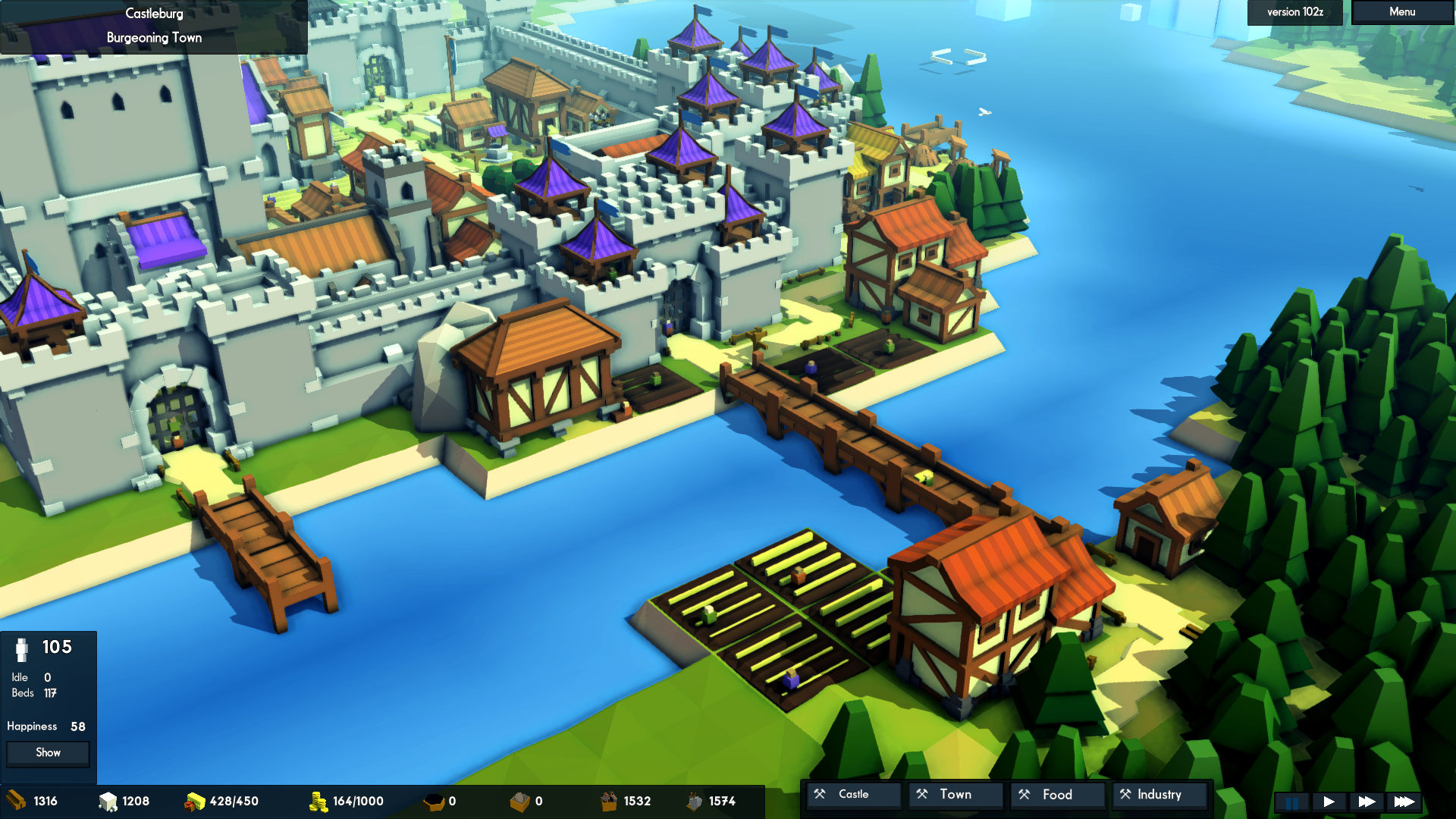The first game published through Fig crowdfunding has already doubled money for investors
Kingdoms and Castles has made over a million dollars in sales, and investors have gotten a quick return.

Just two weeks after breezy medieval city-building sim Kingdoms and Castles launched, it's already generated over a million dollars in sales. That's not just good news for the developers, but also to backers who invested in the game through crowdfunding site Fig. "The video game sold enough copies within 48 hours of release to recover initial investments," Fig's press release stated, "and it will continue to generate revenue-sharing for these Fig Game Share investors for up to the next 3 years."
Kingdoms and Castles is the first Fig-funded game to be released, with its investment period ending back in January. Fast-forward here to August, and investors have already received a 100% return, doubling their money. That's fast work.
Hold up, though. Before you go blindly throwing your money at the next game to appear on Fig, remember that the real benefit for those who invested in Kingdoms and Castles is that the game not only sold well but was published very quickly after the investment period. Investing $1,000 in a game and getting back $2,000 six months later is fantastic, but investing the same amount and having to wait years for the game to be finished and released, and then wait potentially years more to to see your original investment recouped, let alone to see a return on that investment, well, that isn't quite as attractive a prospect.
Psychonauts 2, for example, began crowdfunding with Fig back in 2015, and isn't due for release until 2018. And, while the original Psychonauts, released in 2005, sold about 1.6 million copies, the bulk of those sales (about 1.2 million of them) came between 2010-2015. In other words, if the original Psychonauts had been a Fig-funded game, investors may have had to wait potentially a full decade to see a return on their buy-in.
So, you know, don't go crazy. If you're looking to invest, consider index funds instead, and just spend $10 on Kingdoms and Castles. It's a good time.
Keep up to date with the most important stories and the best deals, as picked by the PC Gamer team.

Chris started playing PC games in the 1980s, started writing about them in the early 2000s, and (finally) started getting paid to write about them in the late 2000s. Following a few years as a regular freelancer, PC Gamer hired him in 2014, probably so he'd stop emailing them asking for more work. Chris has a love-hate relationship with survival games and an unhealthy fascination with the inner lives of NPCs. He's also a fan of offbeat simulation games, mods, and ignoring storylines in RPGs so he can make up his own.

